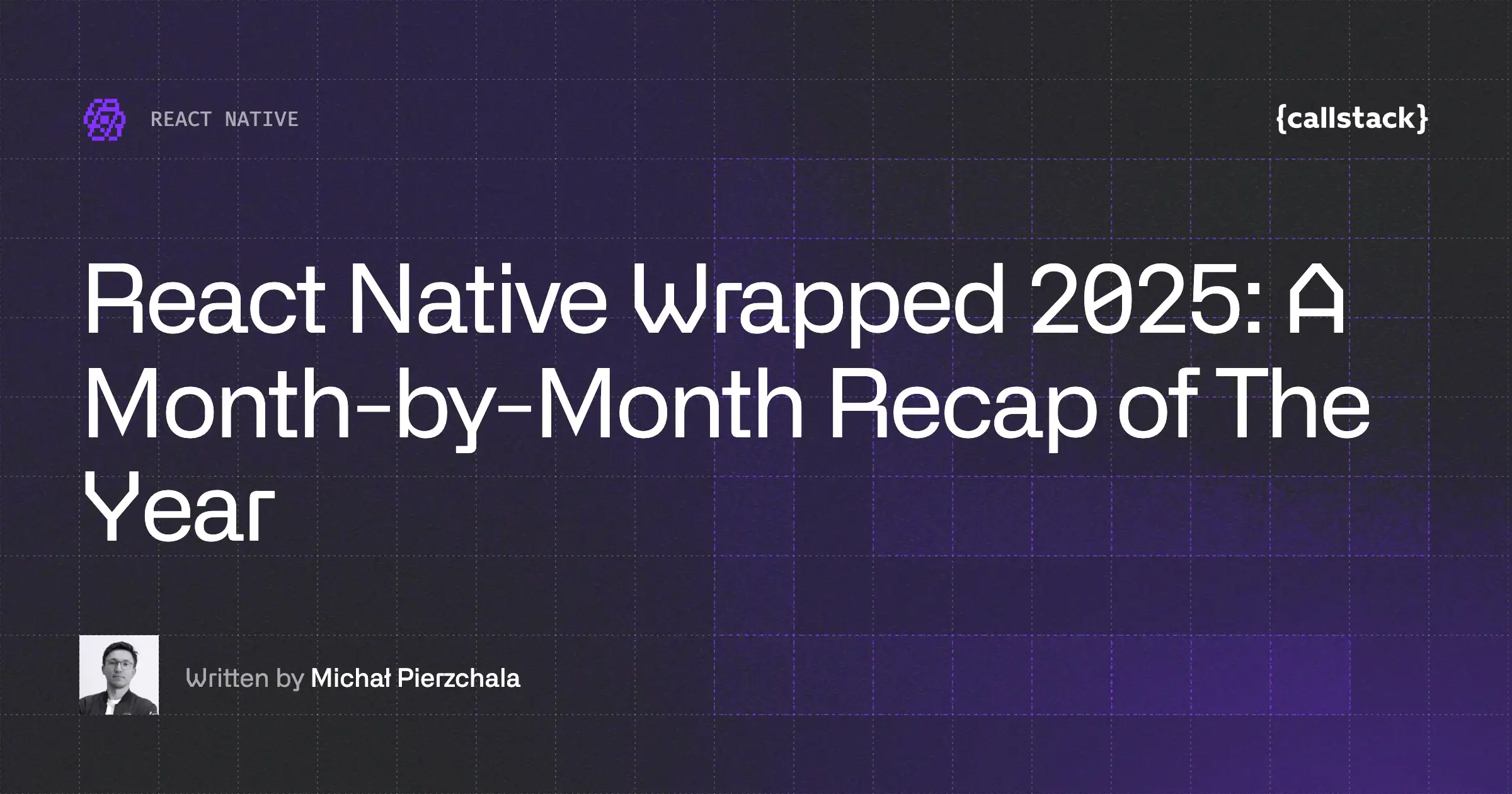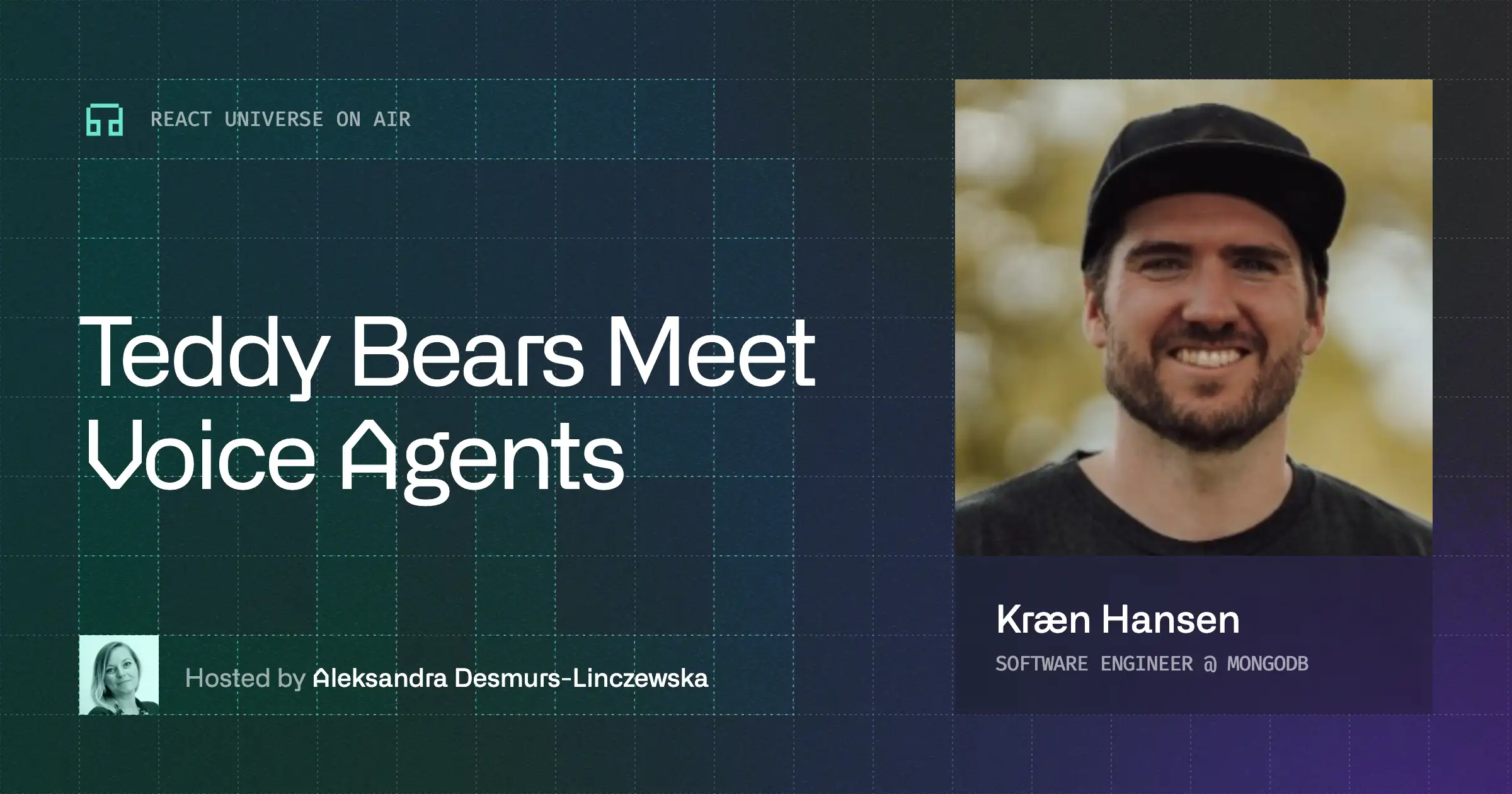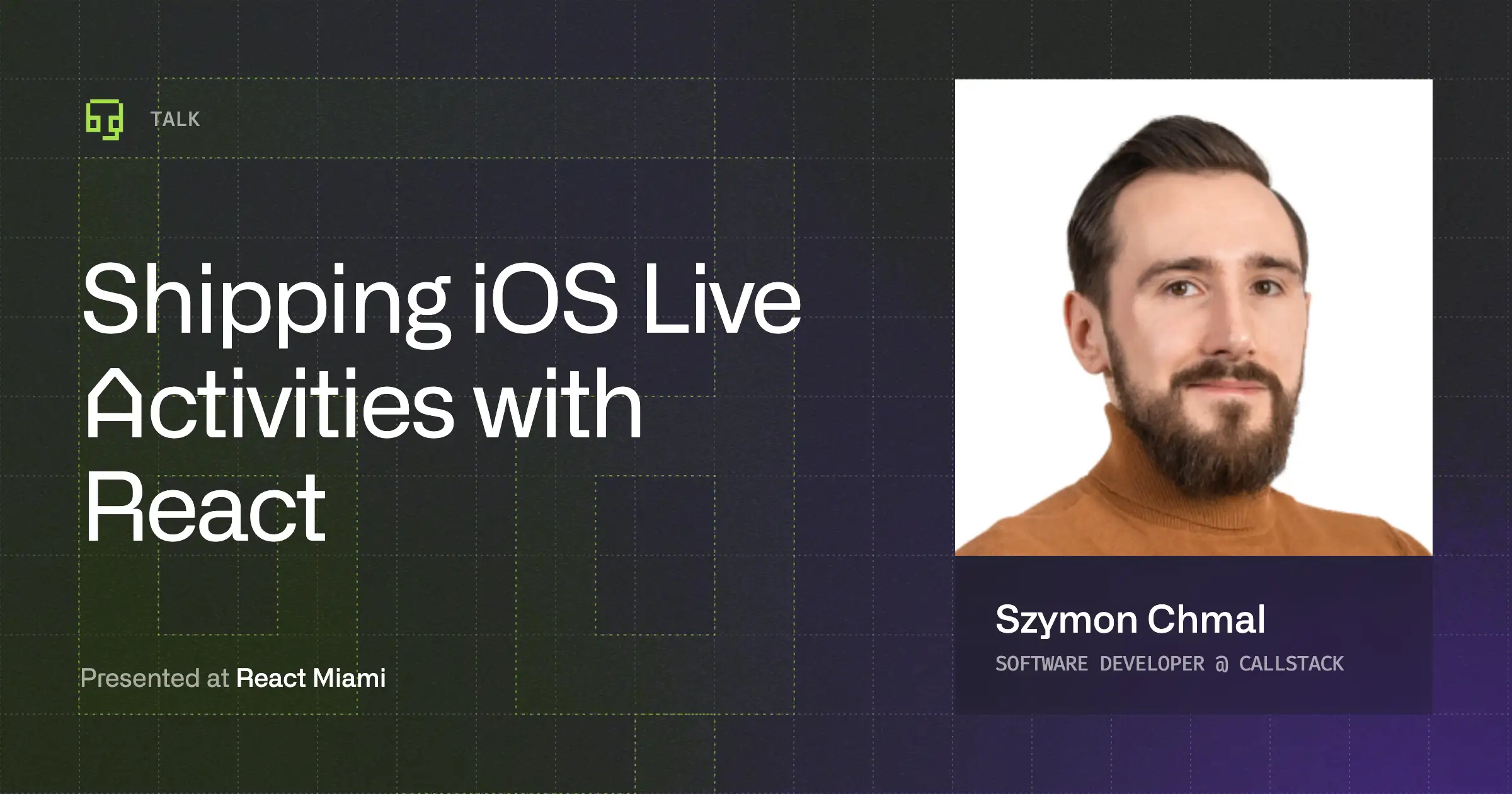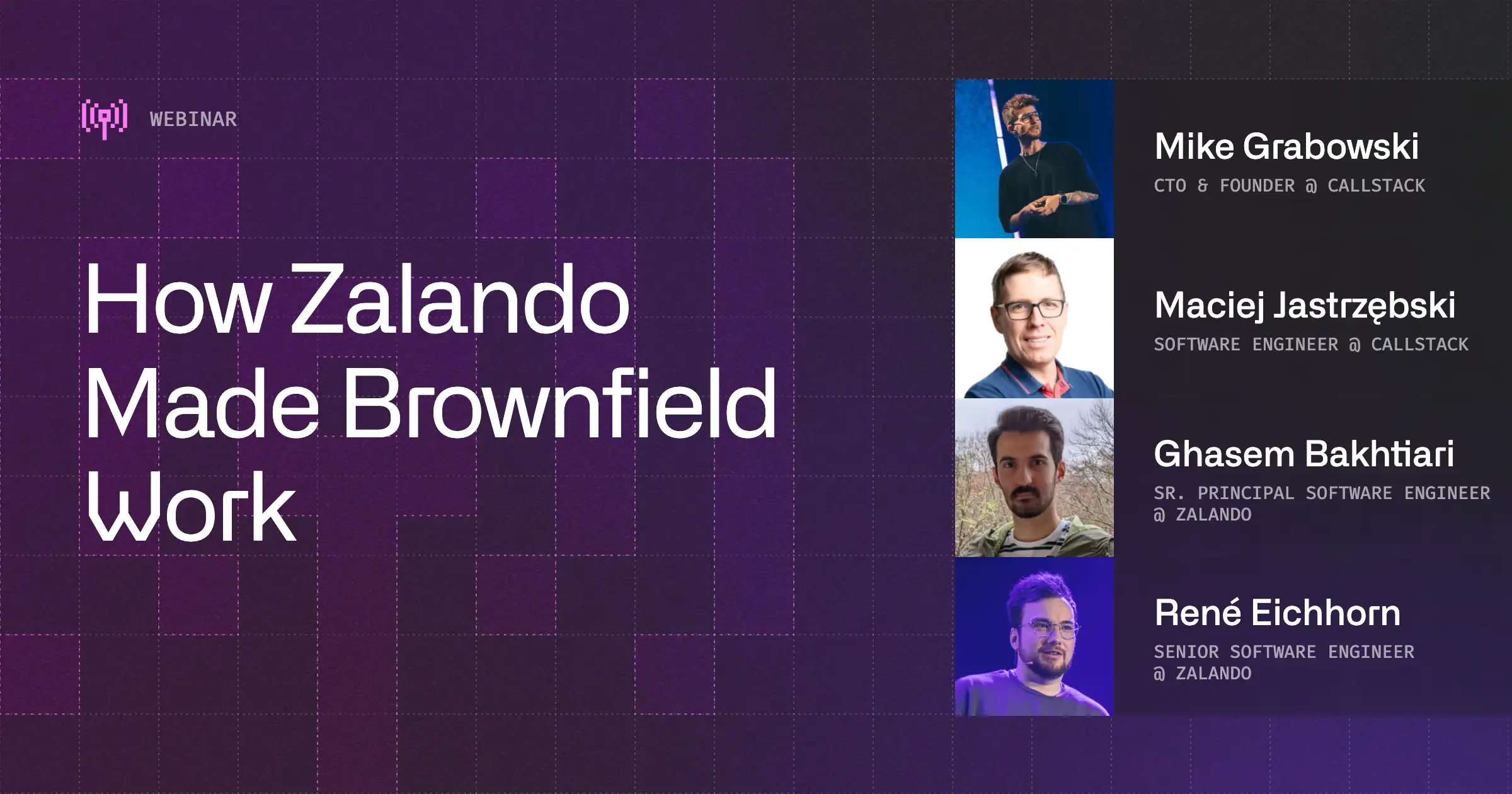After almost two years, Mike Grabowski, the first host of Callstack’s podcast, is back. In this Coffee Talk, however, he’s joining Kuba as a guest. The two are discussing the recently released React Native FastIO - a library designed to boost I/O operations inside React Native applications.
What started out as an experiment of using Nitro Modules to build something incredibly fast and efficient, Mike’s work has led to the creation of a library that offers a variety of I/O primitives, including blob, fetch, file system, and streams. React Native FastIO aims to provide developers with powerful, native-like capabilities while maintaining web compliance, setting a new standard for handling complex I/O tasks in React Native.
Blazing fast I/O for React Native built on top of Nitro
- The evolution of FastIO from a simple Web Socket module to a comprehensive library with various I/O primitives,
- Detailed explanation of the I/O primitives included in React Native FastIO, such as blob, fetch, file system, and streams,
- Architectural approach, focusing on modularity and separation between front-end and back-end processes,
- Challenges faced during the development process,
- Significance of web compliance in React Native FastIO and its impact on cross-platform development,
- Use cases for React Native FastIO, highlighting scenarios where you can make the most of the library, e.g., in resource-heavy applications and real-time data handling,
- Future roadmap, including potential expansions and improvements.
More about React Native FastIO
- React Native FastIO on GitHub
- Mike Grabowski on X and BlueSky
Learn more about Performance

React Native Wrapped 2025: A Month-by-Month Recap of The Year
The first edition of React Native Wrapped looks back at the year RN turned 10 and the ecosystem doubled down on the New Architecture. It provides a month-by-month record of 2025, covering major framework releases, the Legacy Architecture freeze, React 19 integration, and notable developments across tooling, performance, styling, native modules, Expo, and platform adoption.

From Teddy Bears to Voice Agents: Kraen Hansen on Voice AI, Local-First & App Security
Lorem ipsum dolor sit amet, consectetur adipiscing elit. Suspendisse varius enim in eros elementum tristique. Duis cursus, mi quis viverra ornare, eros dolor interdum nulla, ut commodo diam libero vitae erat. Aenean faucibus nibh et justo cursus id rutrum lorem imperdiet. Nunc ut sem vitae risus tristique posuere.

Shipping iOS Live Activities with React: The Voltra Story
Lorem ipsum dolor sit amet, consectetur adipiscing elit. Suspendisse varius enim in eros elementum tristique. Duis cursus, mi quis viverra ornare, eros dolor interdum nulla, ut commodo diam libero vitae erat. Aenean faucibus nibh et justo cursus id rutrum lorem imperdiet. Nunc ut sem vitae risus tristique posuere.

Scaling React Native at Zalando: How Brownfield Migration Paid Off
Lorem ipsum dolor sit amet, consectetur adipiscing elit. Suspendisse varius enim in eros elementum tristique. Duis cursus, mi quis viverra ornare, eros dolor interdum nulla, ut commodo diam libero vitae erat. Aenean faucibus nibh et justo cursus id rutrum lorem imperdiet. Nunc ut sem vitae risus tristique posuere.



